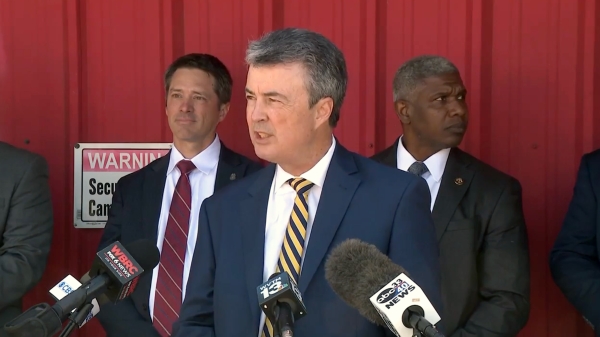|
Getting your Trinity Audio player ready...
|
As school districts across the nation scramble to revise their policies in line with the Biden administration’s updated Title IX regulation, the political theater unfolding around these changes not only threatens to undermine the progress but also exposes a deeply concerning disdain for the rights and dignity of LGBTQ+ students.
Alabama Attorney General Steve Marshall and State Education Superintendent Eric Mackey have advised schools in the state not to implement the new rules. This stance against implementing the new Title IX rules is less about a lack of understanding and more about political positioning and ideological opposition. The updated Title IX regulations are designed to provide clearer and more inclusive protections against sex-based discrimination, explicitly including protections for LGBTQ+ students. These changes are important because they aim to ensure a safe and equitable educational environment for all students, addressing both traditional forms of gender discrimination and emerging concerns related to gender identity and sexual orientation.
Title IX is a federal civil rights law in the United States that was passed as part of the Education Amendments of 1972. It states:
“No person in the United States shall, on the basis of sex, be excluded from participation in, be denied the benefits of, or be subjected to discrimination under any education program or activity receiving Federal financial assistance.”
However, Marshall and Mackey’s advisement for Alabama schools not to implement these rules suggests a prioritization of state-level political agendas over federal compliance and the welfare of students. This move could be interpreted as an alignment with broader political efforts seen in other Republican-led states to resist federal directives that expand LGBTQ+ rights. The resistance often frames such federal mandates as overreaches into state sovereignty or as threats to other societal values, which can resonate with certain electoral bases.
In essence, the decision by these Alabama officials likely reflects a calculated disregard for the specifics and the significance of the updated rules, favoring instead a stance that aligns with their political affiliations and the values of their supporters. This approach not only undermines the legal and moral imperatives to protect all students but also positions the state against federal law, which could have serious implications for Alabama’s educational institutions, both in terms of legal risks and the broader societal message it sends about whose rights are valued.
The new regulation, a response to evolving societal norms and legal standards, aims to simplify and strengthen protections against sex-based harassment and discrimination, expanding definitions to include unwelcome sex-based conduct that could create a hostile environment. This isn’t just bureaucratic reshuffling; it’s a necessary evolution to protect all students and ensure a safe educational environment.
Yet, what should be a straightforward implementation of enhanced protections has erupted into a fierce political battleground. No fewer than 15 Republican-led states are charging into legal battles against the federal government, brandishing lawsuits as their weapons of choice in a war that places ideology above the well-being of students. The governors of states like Florida, Louisiana, Montana, and South Carolina are not just participants in this dispute; they are instigators, urging school districts to outright defy federal law.
This isn’t merely about legal disagreements or federal versus state powers; it’s a clear message to thousands of students that their rights are negotiable, their safety is secondary to political posturing, and their very identities are appropriate grounds for public debate and litigation.
The lawsuits claim the new rule is an “affront to the dignity of families and school administrators,” yet one must ask—whose dignity are they protecting? Certainly not the students who will go to school every day fearing discrimination and harassment that their peers might escape. The legal challenges and calls for defiance are a chilling echo of historical resistances to civil rights advancements, repackaged under the guise of state rights and fiscal concerns.
Moreover, the stances these states are taking could saddle schools with the impossible choice of either adhering to federal regulations and protecting their students or bowing to state pressures and risking the loss of federal funding—not to mention the moral cost of failing to protect all students equally.
The Biden administration’s regulation, while certainly not flawless, provides a framework for addressing these issues more consistently and fairly across the board. It allows for harassment to be investigated not only when it is “severe and pervasive” but also when it is “severe” or “pervasive,” recognizing that the impacts of harassment and discrimination are not always cumulative but can be instantly harmful.
What we are witnessing is not a protective stance for students but a shield for bigotry, held up in the courts and the court of public opinion. As these legal dramas unfold, school districts must not lose sight of their core mission: to educate and protect all students. Administrators should prepare to comply with the federal rule, legal landscape notwithstanding, because to do otherwise would be to prioritize political loyalty over student safety.
The real affront to dignity here is the suggestion that some students deserve less protection than others based on who they are. As the legal battles wage, one must remember that at the heart of Title IX is the principle of equal educational opportunities—a principle that does not bend for political convenience.























































